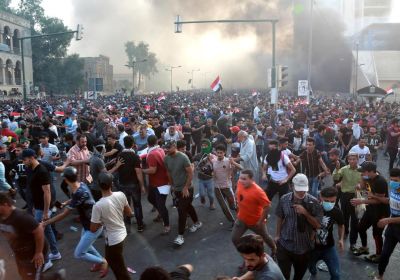
Huge protests have erupted on the streets of Iraq. Green Left Weekly’s Sam Wainwright spoke to Khalil Albawy. Albawy is a member of the Iraqi Communist Party and Secretary of the Iraqi and Australian Friendship Society in Western Australia.

Huge protests have erupted on the streets of Iraq. Green Left Weekly’s Sam Wainwright spoke to Khalil Albawy. Albawy is a member of the Iraqi Communist Party and Secretary of the Iraqi and Australian Friendship Society in Western Australia.
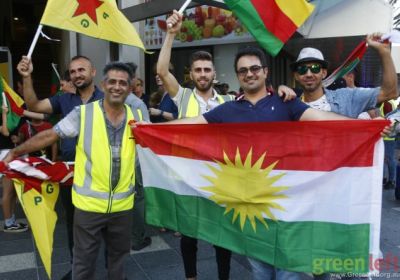
A peaceful rally on the Gold Coast, in Queensland, in solidarity with the Rojava Revolution in northern Syria was attacked by Turkish chauvinists on November 3.
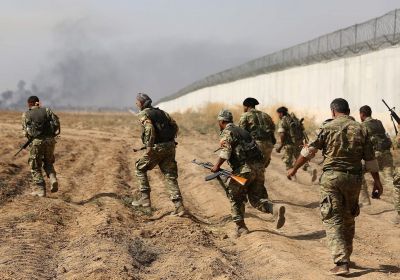
The United States House of Representatives approved a bill to impose sanctions on Turkey over its military operation in Northern and Eastern Syria on October 30.
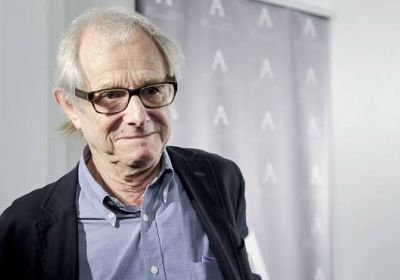
Renowned British film director Ken Loach has signed the call to Boycott Turkish Government Sponsored Academic and Cultural Institutions.
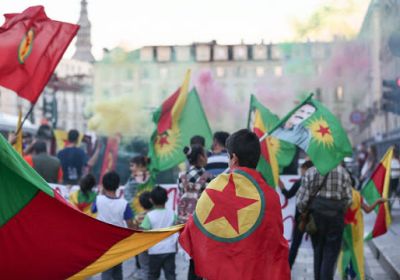
There is little about United States President Donald Trump that one can truly be surprised by at this stage in his presidency. Buffoonery and delusion — not to mention racism and the incitement of violence — have become normalised during his time in office to a frightening degree.
Still, even if we take the most jaw-dropping quotes of his more than two-and-a-half years in office into account, there is something remarkably horrifying about the comments he has made in recent days since he de facto supported Turkey’s offensive into northern Syria, writes Marcel Cartier.
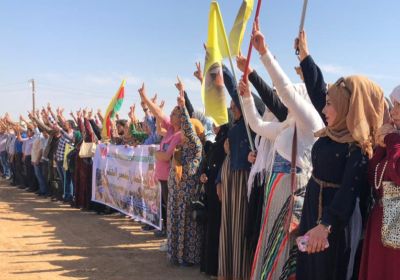
The horrific violence that has been devastating Syria for the past eight years is intensifying, writes Tony Iltis. On October 9, Turkey’s President Recep Tayyip Erdoğan gave the order to NATO’s second largest army to begin the shelling and aerial bombardment of civilian populations of the Autonomous Administration of North and East Syria (AA).
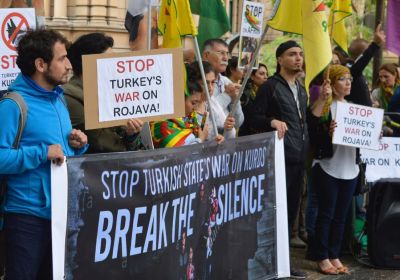
The following statement was released by Make Rojava Green Again, an international campaign aiming to find solutions to the ecological problems facing the Rojava Revolution in Northern Syria.
MRGA has been financially and practically supporting projects in Rojava in the spirit of solidarity and internationalism, and seeking to spread the word about the inspiring process in this region, which Turkey is now trying to annihilate.